Ep. 39: Scott Murphy – VP of Compliance & Security at MA-based marijuana cultivation & dispensary facilities – Revolutionary Clinics, and President of Veterans for Safe Access to Compassionate Care (VSACC) ||
According to HHS.Gov – in the late 1990s, pharmaceutical companies reassured the medical community that patients would not become addicted to opioid pain relievers and healthcare providers began to prescribe them at greater rates. Increased prescription of opioid medications led to widespread misuse of both prescription and non-prescription opioids before it became clear that these medications could indeed be highly addictive. Easy access to highly addictive drugs now has 11.4 million consumers misusing prescription opioids. Directly correlated, nearly 1 million folks now use heroin, and 130 people die everyday from opioid-related causes.
..
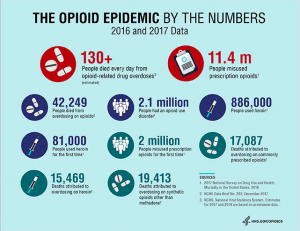
Today we welcome a Veteran with some answers in how to deal with this Opioid Epidemic crippling many communities and families with its mighty grasp. What’s so interesting – Scott uses many of the same soil management practices that we do in food. Scott Murphy is currently VP of Compliance & Security at Revolutionary Clinics. Previous to this, Murphy was Chief of Compliance / Director of Operations at Garden Remedies – where beginning in 2014 he built-out one of Massachusetts’ first professional marijuana grow, processing & value-ad facilities. Scott is also an Army combat veteran who served from 2006-2010. Murphy was deployed to Iraq with 3rd Infantry Division as part of the “Surge” from January 2007 to April 2008.
.
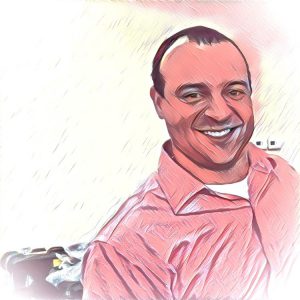 Last, Scott Murphy serves as President of Veterans for Safe Access to Compassionate Care. An organization fighting for smart, just pain management programs for their brethren; for every community, and for every family as a proactive plan against this epidemic.
Last, Scott Murphy serves as President of Veterans for Safe Access to Compassionate Care. An organization fighting for smart, just pain management programs for their brethren; for every community, and for every family as a proactive plan against this epidemic.
.


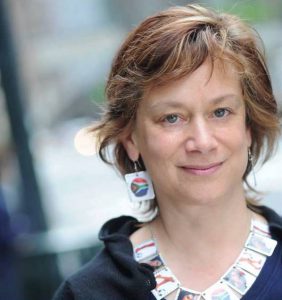 First, in “Cows Save the Planet” – she takes a look at restoring large scale ecological systems through holistic planned grazing of herbivores. Basically, by keeping animals on the parterre lands, in natural environments we evolve our management practice to actually harmonize with natural order. This kick starts natural environments that can have vast net positive impact on the climate. Soil everywhere becomes a thriving carbon bank – by first stabilizing natural exchanges, then sucking-up excess carbon we spew into the air. Judith shares her thoughts on the current state of affairs with this approach & mindset, and some new discoveries since publishing the book.
First, in “Cows Save the Planet” – she takes a look at restoring large scale ecological systems through holistic planned grazing of herbivores. Basically, by keeping animals on the parterre lands, in natural environments we evolve our management practice to actually harmonize with natural order. This kick starts natural environments that can have vast net positive impact on the climate. Soil everywhere becomes a thriving carbon bank – by first stabilizing natural exchanges, then sucking-up excess carbon we spew into the air. Judith shares her thoughts on the current state of affairs with this approach & mindset, and some new discoveries since publishing the book.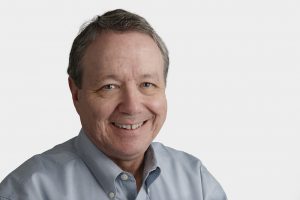 Previous to beginning his work at the CLF in 2011, Martin was the Executive Director of the PEW Commission on Industrial Farm Animal Production. Martin managed a comprehensive two-year, $3.6 million study that led to the publication of eight technical reports and a final 122-page report on the public health, environmental, animal welfare and rural community impacts of our conventional methods for producing meat, dairy and eggs. The report – Putting Meat on the Table: Industrial Farm Animal Production in America defined a seminal moment of awareness in US production, food systems and supporting a shared one-health. It’s been a significant part of our realization that the approach we’re using to raise animals has broad reaching human and public health impact that needs immediate attention.
Previous to beginning his work at the CLF in 2011, Martin was the Executive Director of the PEW Commission on Industrial Farm Animal Production. Martin managed a comprehensive two-year, $3.6 million study that led to the publication of eight technical reports and a final 122-page report on the public health, environmental, animal welfare and rural community impacts of our conventional methods for producing meat, dairy and eggs. The report – Putting Meat on the Table: Industrial Farm Animal Production in America defined a seminal moment of awareness in US production, food systems and supporting a shared one-health. It’s been a significant part of our realization that the approach we’re using to raise animals has broad reaching human and public health impact that needs immediate attention. Throughout the 45 minute conversation Shauna shares some interesting anecdotes of situations that have arisen in her time at as VP at Annie’s, and most recently while managing the organic allotment of General Mills’ vast arsenal of products.
Throughout the 45 minute conversation Shauna shares some interesting anecdotes of situations that have arisen in her time at as VP at Annie’s, and most recently while managing the organic allotment of General Mills’ vast arsenal of products.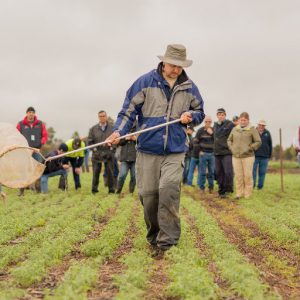 A whistleblower case was filled against the USDA – stating the actions of USDA leadership suppressed his voice; compromised his science. Penalized for these actions, Dr. Jonathan Lundgren was soon forced out of the USDA as retaliation against those scientific findings, and mostly for not backing down. For episode 35 you get to hear how this brave and honorable scientist is setting a path forward for a more just, prosperous and well informed tomorrow.
A whistleblower case was filled against the USDA – stating the actions of USDA leadership suppressed his voice; compromised his science. Penalized for these actions, Dr. Jonathan Lundgren was soon forced out of the USDA as retaliation against those scientific findings, and mostly for not backing down. For episode 35 you get to hear how this brave and honorable scientist is setting a path forward for a more just, prosperous and well informed tomorrow.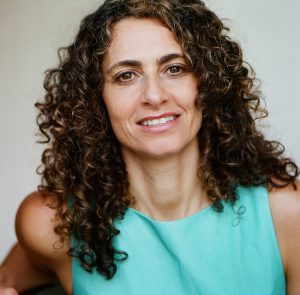
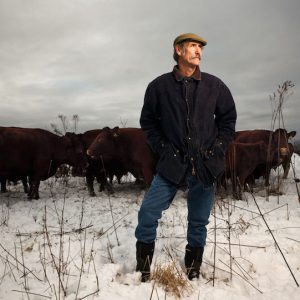
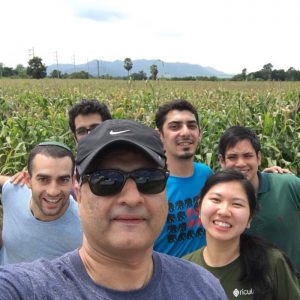 Their Bill and Melinda Gates foundation backed company has now architected and framed a system which alleviates many of the issues within current supply chains for small farmers. Supply chains for the billion small stakeholder farmers throughout the globe are often controlled by their investors, who maybe be better described as loan-sharks and present limited interest in feeding a shrinking planet nor looking out for the best interests of their debtors. From Clearinghouse -to- Financier -to- Marketplace preserving production qualities – it’s RIcult that has stepped in to re-introduce potential for small stakeholder farmers to make a fair living through growing our food.
Their Bill and Melinda Gates foundation backed company has now architected and framed a system which alleviates many of the issues within current supply chains for small farmers. Supply chains for the billion small stakeholder farmers throughout the globe are often controlled by their investors, who maybe be better described as loan-sharks and present limited interest in feeding a shrinking planet nor looking out for the best interests of their debtors. From Clearinghouse -to- Financier -to- Marketplace preserving production qualities – it’s RIcult that has stepped in to re-introduce potential for small stakeholder farmers to make a fair living through growing our food.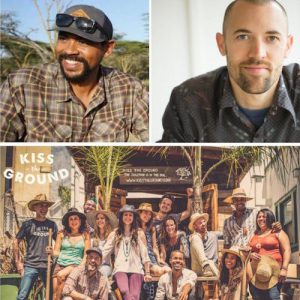 On episode 31 of Sourcing Matters we welcome Ryland Engelhart and Jesse Smith of Kiss The Ground. Well known for the critically acclaimed book and forthcoming movie, both sharing the same namesake as their organization, non-profit Kiss The Ground is telling a new story about our ability to regenerate land, reverse climate change and reconnect to nature by building back healthy soil. Through programs focused on storytelling, education, business, community gardens and the farmland – Kiss The Ground empowers people to restore soil and help accelerate the adoption of regenerative agriculture. Seamlessly complementing each other throughout the 45 minute conversation, both guests brought unique insight to our discussion which connected soil, human, and planetary health.
On episode 31 of Sourcing Matters we welcome Ryland Engelhart and Jesse Smith of Kiss The Ground. Well known for the critically acclaimed book and forthcoming movie, both sharing the same namesake as their organization, non-profit Kiss The Ground is telling a new story about our ability to regenerate land, reverse climate change and reconnect to nature by building back healthy soil. Through programs focused on storytelling, education, business, community gardens and the farmland – Kiss The Ground empowers people to restore soil and help accelerate the adoption of regenerative agriculture. Seamlessly complementing each other throughout the 45 minute conversation, both guests brought unique insight to our discussion which connected soil, human, and planetary health. It’s Agriculture Capitals mission to grow access to healthy, sustainable food. “We’ve assembled experienced professionals from finance, farming, processing, marketing, and sustainability to bring innovative thinking to managing successful food enterprises.” described the firm’s website. Turner has over 20 years of experience in corporate sustainability, environmental management, and consumer engagement. Most recently, he was on the executive team at organic yogurt pioneer Stonyfield Farm as the company’s VP Sustainability Innovation. Prior to that, he was founding executive director of Climate Counts, an international NGO focused on measuring and scoring the world’s largest consumer companies on their concrete, enterprise-level responses to climate change. Wood has consulted to brands, elected officials, and public agencies on mobilizing the public around ideas that improve the environment and build community.
It’s Agriculture Capitals mission to grow access to healthy, sustainable food. “We’ve assembled experienced professionals from finance, farming, processing, marketing, and sustainability to bring innovative thinking to managing successful food enterprises.” described the firm’s website. Turner has over 20 years of experience in corporate sustainability, environmental management, and consumer engagement. Most recently, he was on the executive team at organic yogurt pioneer Stonyfield Farm as the company’s VP Sustainability Innovation. Prior to that, he was founding executive director of Climate Counts, an international NGO focused on measuring and scoring the world’s largest consumer companies on their concrete, enterprise-level responses to climate change. Wood has consulted to brands, elected officials, and public agencies on mobilizing the public around ideas that improve the environment and build community.